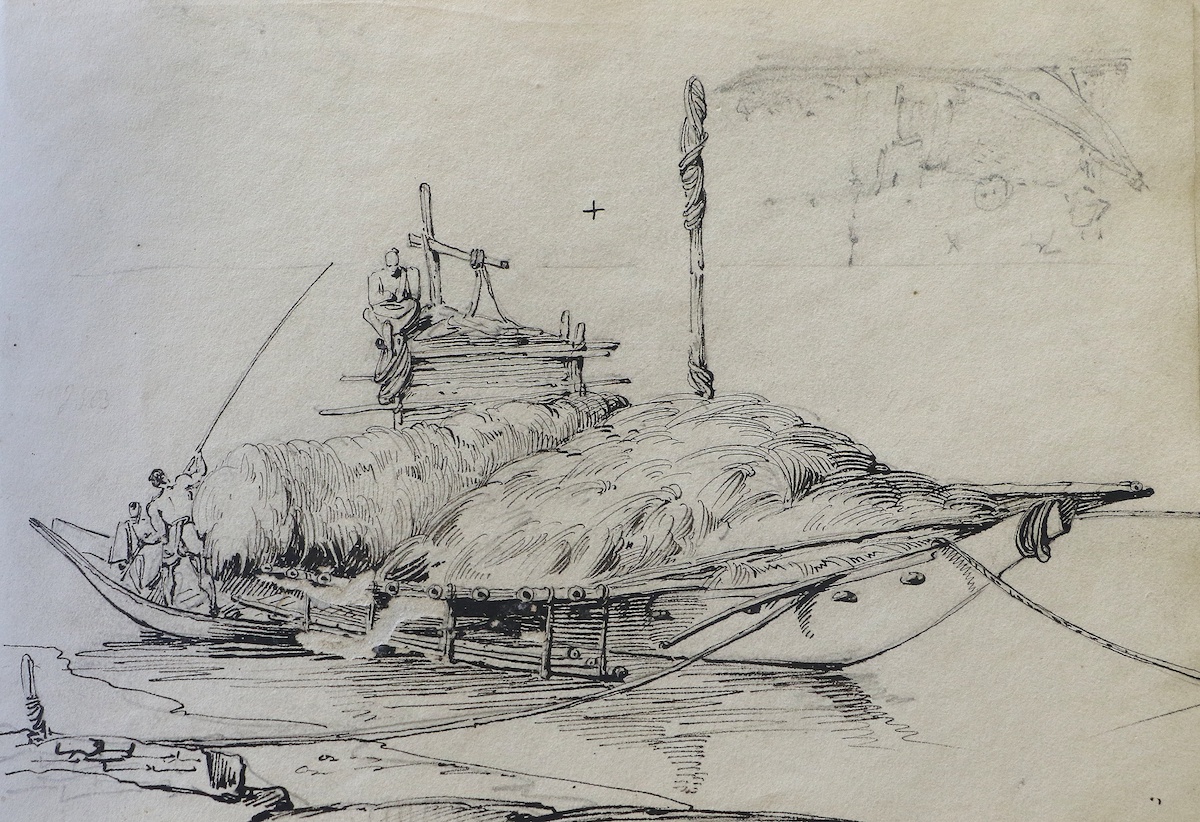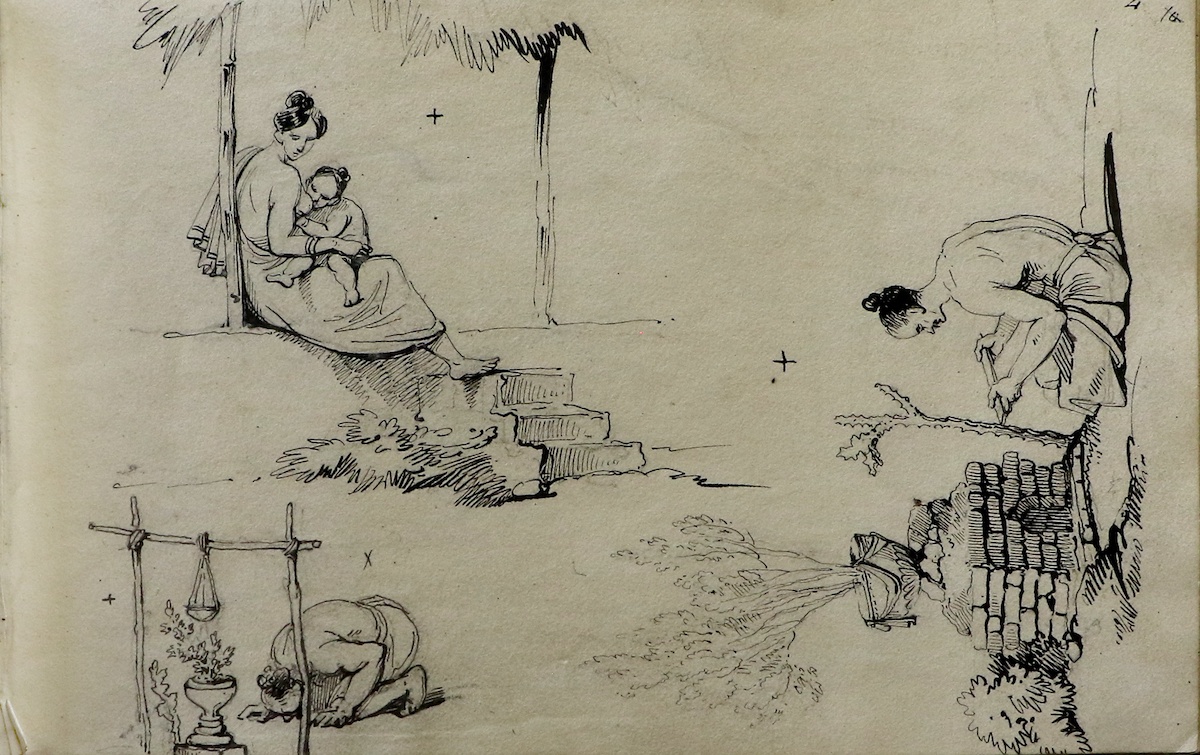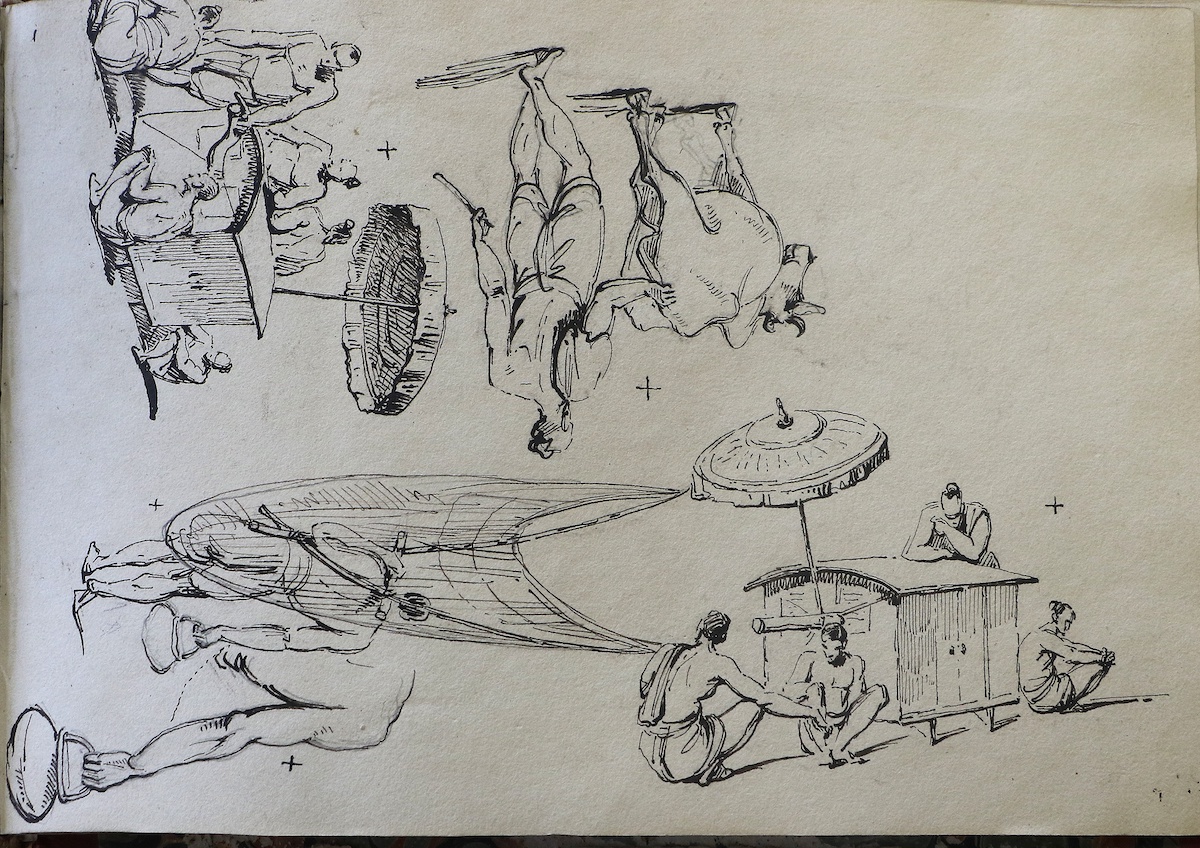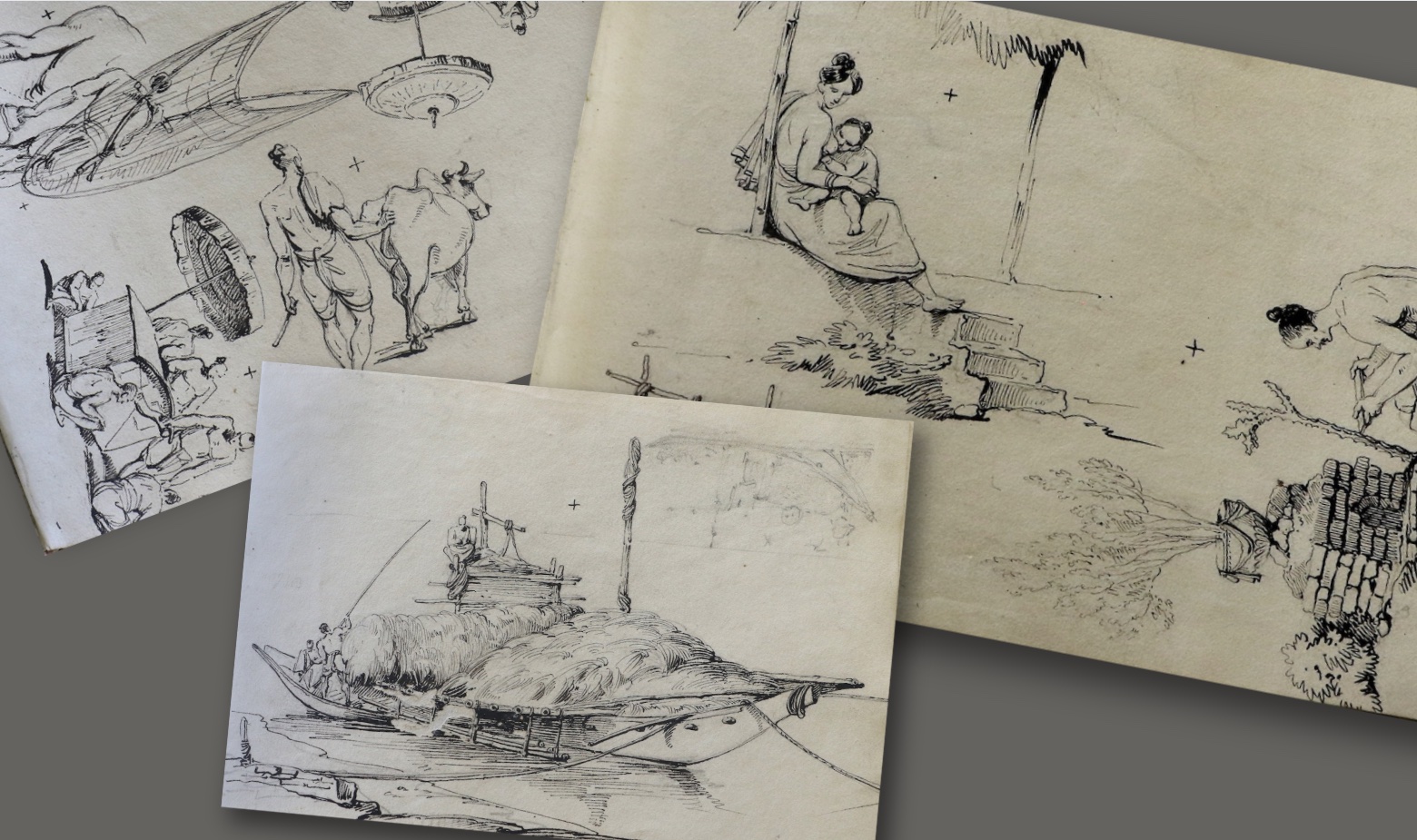#George #Chinnery #sketchbook #draw #bidders #Antique #Collecting
An extraordinary record of everyday life in Southern China in the early to mid 19th century, by the English artist George Chinnery (1774-1852), will go under the hammer at North Yorkshire’s Tennants Auctioneers on April 10.
The collection of drawings in the artist’s sketchbook has become an important source of historical information on the region.

Born in London and educated at the Royal Academy Schools, Chinnery was a gifted artist but terrible with his finances, forever chasing commissions and running from creditors. After a brief spell in Ireland between 1796 and 1801, during which time he married and had two children, he sailed East to seek sitters and escape debts and would never see the British Isles or his family again.
In 1802, Chinnery landed in Madras (today Chennai), where his brother was in the employ of the British East India Company. Here he set himself up as an artist, before moving to Calcutta (today Kolkata), where he became the leading artist to the British Community. However, debt once again forced a move, this time to West Bengal which was not under British rule, so his creditors couldn’t enforce payment. Here, it seems, he couldn’t gain enough commissions, so in 1825 he once again set sail, this time to Macau in Southern China, which was rich in subject matter but lacking in artists.

In Macau, Chinnery depicted the myriad Western and Chinese merchants in the trading hub of a city, along with sea captains and expatriate merchant families from around the world. It is thought he was the only Western painter to be residing in Southern China in the early to mid-19th century.
Despite the rich subject matter, Chinnery was much more interested in capturing landscapes and the everyday life of the native population of Macau and surrounding regions with his characteristic Romanticism. It is said he went out at first light every day to sketch fishermen, blacksmiths, mothers and children, and market vendors, before returning to breakfast and a day in his studio. George Chinnery died and was buried in Macau in 1852.

It is these vivid depictions of ordinary people, thought to be of Southern China, that fill the pages of the sketchbook offered for sale, which has an estimate of £4,000-6,000. The book contains scenes of a breast-feeding mother, men praying, squatting, sitting, smoking and sleeping, dogs, cattle, and a team loading a large boat, and is annotated with a modified version of the shorthand taught to Chinnery by his writing master father.
The sketch book, according to an inscription, was given to Harriet Paget in 1826 by General Sir Edward Paget GCB (1775-1849), a British Army officer, Governor of Ceylon and Commander-in-Chief in India. It was then lent in 1837 to Henry W Paget (1768-1854), 1st Marquess of Anglesey and Earl of Uxbridge who lost his leg at Waterloo.





